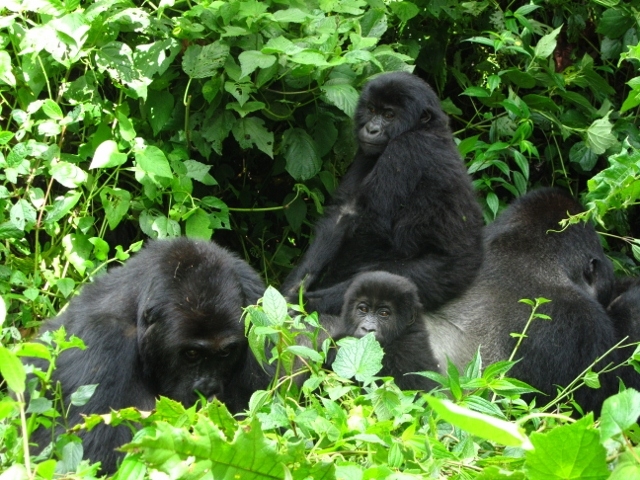Badiar National Park is a national park in Guinea, on the border with Senegal and contiguous with Senegal’s much larger Niokolo-Koba National Park.
It was established on 30 May 1985 (by ordonnance N°124/PRG/85), partly in response to Senegal’s concern about poaching in Niokolo-Koba National Park.
Badiar is an International Union for Conservation of Nature Category II park.
The park consists of two separate areas: the Mafou sector of 554.0 square kilometers (213.9 sq mi) and the Kouya sector of 674.0 square kilometers (260.2 sq mi). There is also a buffer sector of 5,916 square kilometers (2,284 sq mi) around the Mafou sector.
The principal rivers are the Koulountou (one of the two main tributaries of the Gambia River) and the Mitji. The annual rainfall averages 1,000 to 1,500 millimeters (39 to 59 in), mostly during the rainy season of June-October.
The park is an important ecosystem, with a large variety of vertebrate species and vascular plants. It is one of the three core areas of the Badiar Biosphere Reserve, established in 2002 and covering 2,843 square kilometers (1,098 sq mi) that also includes the neighbouring forest of Southern Badiar and the Forest of Ndama.
The terrain includes savanna, open woodlands and gallery forest. The eastern part of the park contains scrub woodland, while the western part is characterized by wooded savanna and open forest.
Endangered plant species include Ceiba pentandra, Cassia sieberiana and Combretum micranthum. Endangered animal species found within the park include the Western red colobus, the common chimpanzee, the white stork, the African rock python and the ball python.
Other resident species include the African elephant, the roan antelope, the kob, the leopard, the spotted hyena and the baboon.


